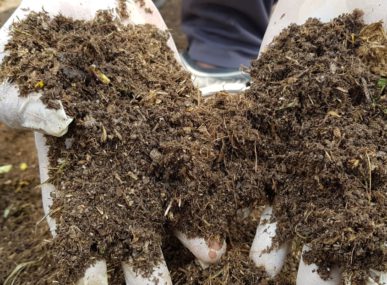“The whole world is facing huge trouble with food,” says Tony, one of the founders of Cairo-based organic food project Maten’s Farm. The business will focus on vermicomposting, the process of creating high-quality plant fertilizer from worm manure.
As an Egyptian, Tony knows all too well about food-related problems. The world’s most populous Arab country annually produces around 73 kilograms of food waste per capita. This takes a toll on the Egyptian economy, with a study finding that Egypt loses about EGP 11 million every year on wasted wheat, oranges and tomatoes alone.
Food waste contributes to an even more important public health challenge, which UNICEF describes as Egypt’s “double burden of malnutrition.” The rate of “poor” access to food stands at 16 percent across Egypt, and rises to an alarming 38.7 percent in underdeveloped Upper Egypt. At the same time, many other Egyptians are locked in a counter-intuitive struggle with obesity. UNICEF traces this trend to poor dietary habits and a general lack of education about healthy eating.
At the start of this year, Tony and his colleagues founded Maten’s Farm in response to these pressing, food-related concerns. Tony’s regular job is with a national company as a social media and marketing expert, but he plans to transition into a full-time role managing Maten’s Farm.
Vermicomposting ensures that food scraps do not go to waste, and are instead reincarnated as organic fertilizer capable of producing healthy food. To this end, the star recruit at Maten’s Farm is the African Night Crawler, a species of worm renowned as a highly efficient composter. The worms eat food waste, digest its nutrients and produce manure that can be used as plant fertilizer.
So far, Maten’s Farm has successfully produced trial samples of fertilizer, with a view to commencing public sales by early 2019. According to Tony, the vermicomposting industry offers lucrative business opportunities in Egypt, while also making a positive social contribution.



